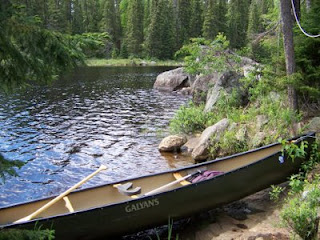
A few years ago I found myself in a world of hurt financially. There's no need to go into the reasons this happened. But I'd like to share the plan I am using to pull myself up without resorting to bankruptcy or putting a gun to my head. The following is a plan based mostly on the advice Dave Ramsey doles out on his radio show and in his best selling books.
____________________________________________________
Step zero: Cut up your credit cards!
Step one: Save $1,000 cash as a starter emergency fund
Before you do anything else, you must save a $1,000 emergency fund. This money is to be used only for emergencies: car repairs, medical bills, etc. If you have a cash cushion, life’s mishaps won’t force you deeper into debt. You’re able to recover more quickly.
Step two: Start the debt snowball
Once you’ve built some savings, it’s time to tackle your debt. You do this with the debt snowball. Here’s how it works: Instead of attacking high-interest rate debts first, you attack low-balance debts first. Why? Because you’ll get the psychological lift of pinging debts off in rapid succession. For psychological creatures this makes all the difference. The Debt Snowball approach is:
- Order your debts from lowest balance to highest balance.
- Designate a certain amount of money to pay toward debts each month.
- Pay the minimum payment on all debts except the one with the lowest balance.
- Throw every other penny at the debt with the lowest balance.
- When that debt is gone, do not alter the monthly amount used to pay debts. Start by adding the minimum payment from card/debt with the next-lowest balance to the previous total and attack that debt.
- Continue this snowball until all your consumer debt is gone
Step three: Finish the emergency fund
Your $1,000 emergency fund was only a start — after you’ve eliminated your non-mortgage debt, it’s time for some serious saving. It’s wise to accumulate three to six months of living expenses. For most people, that’s $5,000 to $10,000.
Step four: Invest 15% of your income in retirement
Complete the first three steps (especially the first two), saving investing for last, once good habits have been established. It’s true that you’ll give up a few years of compound returns in your retirement accounts, but that’s okay in the long run. By following the first three steps, you will have developed smart money habits and a strong saving ethic, so that it won’t take much effort to catch up.
Step five: Save for college
Once you’ve begun saving for your retirement, you can turn your attention toward your children. Use an Education Savings Account or a 529 plan to save for your children’s college education. Urge children to work for scholarships and to get a job when it’s possible.
Step six: Pay off your home mortgage
Once you’ve taken care of everything else, it’s time for a final, giant step. Try prepaying your mortgage. There are objections from financial planners on this step, for psychological reasons it’s often worth it.
The easy method: You can pay off your 30-year mortgage in half the time without refinancing by making extra principal payments. On the first of the month when you write your regular mortgage check, write a second check for the “principal only” portion of the next month’s payment.
Step seven: Build wealth
If you’ve done all these things — eliminated debt, built emergency savings, invested 15% of your income, and paid off your mortgage — you can begin to build some serious wealth. Enjoy life!
________________________________________________
There you have it. Ramsey has his critics - implying this is too simplistic, but in fact it works because it is simple. I differ with him on some points. I keep one (and only one) credit card for travel, work purchases etc, etc. It gets paid off and interest is never accrued. No harm, no foul.
So far this simple plan is working spectacularly for me...
CW













I try to be rational about Obama, but I just can't help myself. His "style over substance" approach reminds me so much of the guy who plays the antichrist in those "Left Behind" movies that it's uncanny. They have the same atmosphere of encouraging bizarre devotion in the weak-willed while simultaneously creeping the heck out of anyone with common sense. They act and speak similarly. They even kind of look alike, allowing for racial differences. Add in all the way Obama borrows his advertising style exclusively from leftist mass-murderers like Hitler, Lenin and Che, and it creeps me out. I feel like I'm living through Omen III- The final Conflict or something.